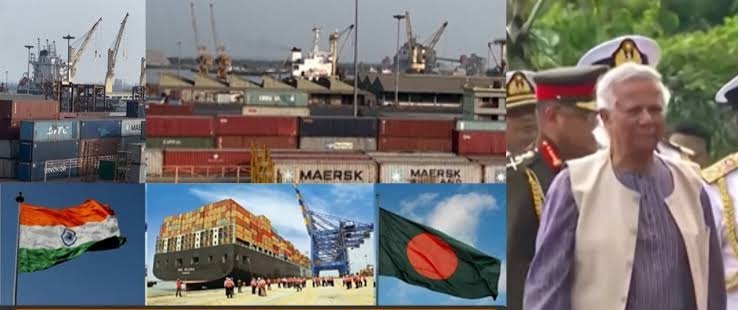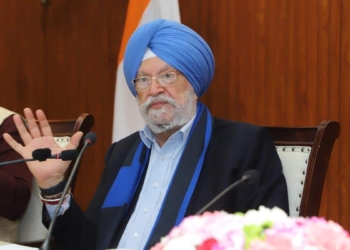In a sharp escalation of trade tensions, India has imposed import restrictions on key Bangladeshi products through land routes, including ready-made garments, fruit-based drinks, confectionery, plastic goods, and wooden furniture.
The move comes amid growing friction following the ouster of former Prime Minister Sheikh Hasina and regional policy shifts under the Muhammad Yunus-led interim government.
The restrictions, effective immediately, target Bangladeshi exports via land ports like Akhaura and Dawki, disrupting roughly $770 million in annual trade, or 42% of Bangladesh’s land-based exports to India.
The list of banned imports includes:
-
Ready-made garments
-
Fruit-flavored & carbonated drinks
-
Baked snacks, chips, confectionery
-
Plastic, PVC finished goods
-
Cotton yarn waste, wooden furniture
India has also suspended trans-shipment access previously granted to Bangladesh for routing goods to third countries, a move seen as retaliatory after Bangladesh earlier restricted Indian yarn imports by land.
Sheikh Bashiruddin, Commerce Adviser in the interim government, responded diplomatically, stating that no formal communication had been received yet from New Delhi.
“We only learned about India’s measures through media. If any official issue arises, both sides will discuss and try to resolve it,” he said.
Bashiruddin acknowledged both nations’ practice of seasonal import restrictions as part of “trade management,” adding that the aim is to preserve mutual competitiveness in regional markets.
“Our goal remains to resolve trade disputes through discussion… India is rich in textiles; still, our garment exports to India reflect our production capacity,” he added.
The diplomatic backdrop includes:
-
Sheikh Hasina’s removal from power last year
-
Reports of Hindu minority persecution in Bangladesh
-
Dhaka’s recent market restrictions and pro-China tilt
India’s move is being interpreted as economic signalling, sending a message over strategic misalignments, especially given Bangladesh’s shifting trade posture and recent political realignments.
With land ports restricted, Bangladeshi exporters will be forced to reroute shipments via Indian seaports, notably Nhava Sheva and Kolkata, increasing logistics costs and delivery timelines.





























